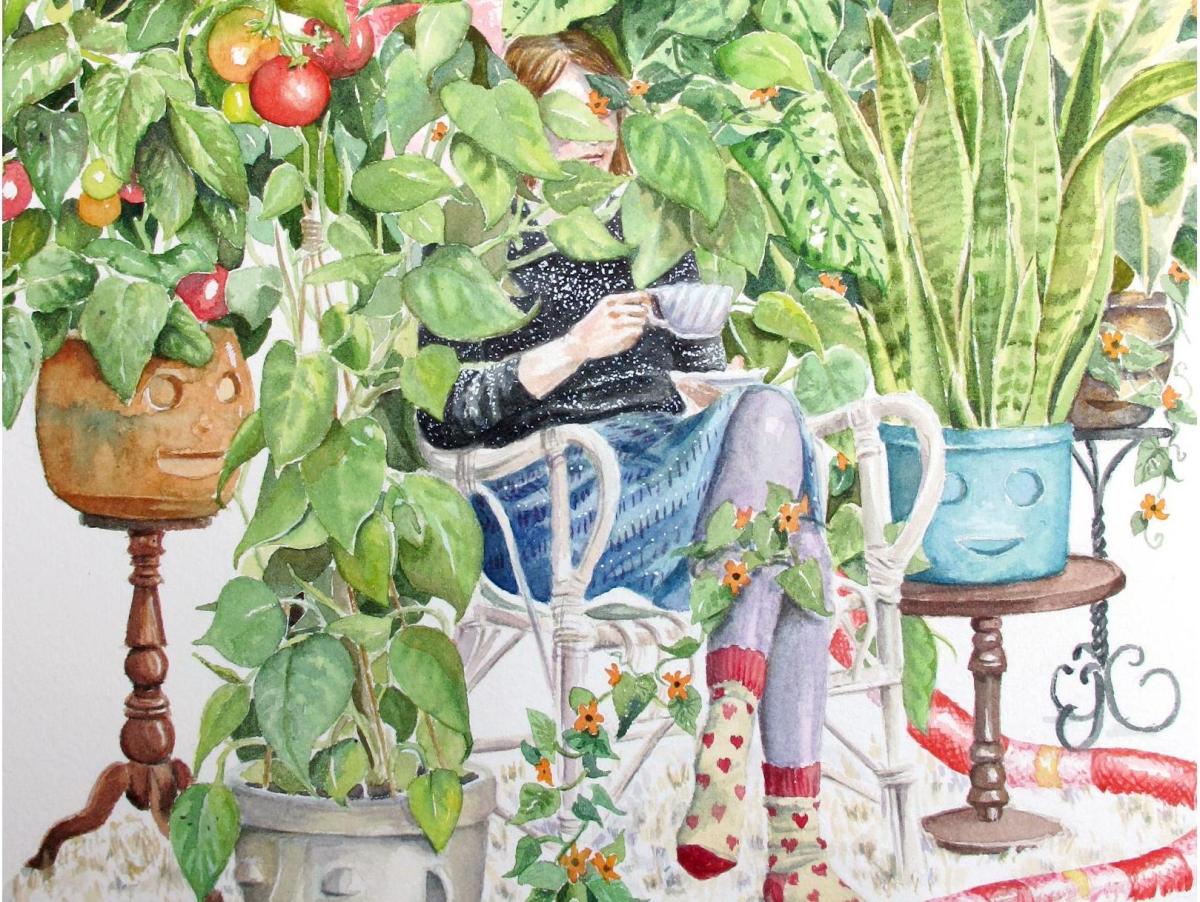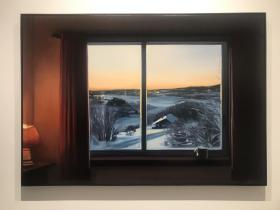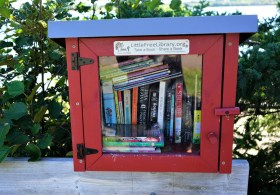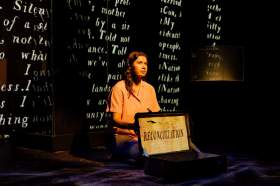Another Green World by Carmel Seymour
“Solitude, a rest from responsibilities, and peace of mind, will do you more good than the atmosphere of the studio and the conversations which, generally speaking, are a waste of time.”
– Louise Bourgeois
Artists throughout time have pontificated about the benefits of spending time alone as well as the lonely patience required to make art. Yet despite the long-praised benefits of alone time on our practice and creativity, the right sort of solitude can seem elusive for many of us.
Even when we do get the chance to be alone, it can feel like a forgotten art. As Sara Maitland writes in How to Be Alone, ‘How have we arrived, in the relatively prosperous developed world, at least, at a cultural moment which values autonomy, personal freedom, fulfilment and human rights, and above all individualism, more highly than they have ever been valued before in human history, but at the same time these autonomous, free, self-fulfilling individuals are terrified of being alone with themselves?’
We mistake being alone with doing nothing. We allow our work, social and family schedules to zap our time alone. Endless opportunities for distractions mean that when we are alone, we are not truly alone – we have the world at out fingertips, and opportunities to compare ourselves and our work with each scroll we take through our social media newsfeeds.
Journalist and author of Happy Never After, Jill Stark, said: ‘I think we live in a world where we overburden ourselves not just with work commitments but social and family commitments, and that level of duty and obligation, and we completely forget to send time on our own and ourselves.”
So aside from sought after residences that don’t necessarily cater to all types of careers in the arts, how do each of us go about finding solitude in our day to day lives?
Here, creatives across multiple sectors share their thoughts on the benefits they find in spending time alone for their work, the challenges they face in seeking it, and how they prioritise it.
THOUGHTS ON THE IMPORTANCE OF ALONE TIME, AND HOW TO GET IT
1. On the cycles of solitude
‘I do pretty much all my writing alone, and I will have really productive phases where I will stay up all night writing and other times where I will not really do much and I worry that it will never happen again. It seems a bit mysterious, the coming and going of it, but in general I tend to want to be alone a lot – I need that alone time to work or think about things or practice or do research or read up on things that are interesting me every day pretty much.’ – Brendan Welch, musician
2. On scheduling alone time
‘Time for myself is one thing that I factor into my week as much as I can. Even though I live on my own and I could say I always have time on my own, it’s a very different thing to put it in the diary as you would if you were meeting a friend or going on a date and nothing gets in the way and you don’t cancel on yourself.’ – Jill Stark, journalist and author
3. On acknowledging distractions and daydreaming
‘For me all my studio time is alone time, but I do get terribly distracted. When the pressure is on I can block the world out a little easier; a good pair of headphones helps too. I need to be alone to allow for all the daydreaming that I need to create new works. I do think it’s essential to discuss ideas with others and that can often lead to surprising outcomes, but the intimate core of my works comes from quiet times at my desk. Sometimes just sitting and staring at what is around my studio leads to the most exciting new connections.’ – Carmel Seymour, visual artist
4. On breaking from social media
“When I take a break to spend time by myself – and that could be a week, or an afternoon or an hour – one of the most important things to to try to be really disciplined about social media as the notifications can be distracting. I set alarms and I only look at social media every few hours.’ – Jill Stark
5. On solitude as an important part of the collaborate process
‘I take the definition of independent artist quite literally in that I work alone most of the time! My own projects are often self-driven. Even when I collaborate as a writer and performer, I need solo time to dream, play, relax and create and my process is quite private – I’m very careful about who I let near my work before it is ready!’ – Bethany Simons, producer, writer and performer
6. On the importance of doing nothing
‘I know this sounds really alien to us in this world where we are constantly distracted, but actually just sitting and doing nothing can be really helpful – and literally nothing, not reading a book; just sitting and thinking and letting whatever comes into your head.’ – Jill Stark
7. On going on an ‘artist date’
‘I count research and artistic consumption as work, and it’s often best to do this alone. I love the “artist date” concept in Julia Cameron’s The Artist’s Way, which is going on solo dates reserved just for me and my inner artist. Everyday occurrences and conversations are a key source of inspiration, so it’s important for me to forge ahead without company as much as possible because it keeps me alert to the world around me. I love wandering through parks and along streets I don’t know, eavesdropping and scribbling ideas. I’m not always working on something solid – simply generating material such as poetry, songs, and voices is an important part of my practice.’ – Bethany Simons
8. On one task at a time
‘I have two children and staff that require my attention and support but I need alone time to answer emails and manage the administration side of my work. This sadly makes up a lot of my time, probably around 10 hours a week. However when I’m brainstorming new directions for the business, or planning events I love working collaboratively. I believe ideas only get better when they are bounced around and shared. I think it’s healthy and important for the brain to focus on one task at a time and having a quiet place to work without interruption definitely aids this practice.’ – Alice Glenn, Creative Director of Schoolhouse Studios, co-founder of No Lights No Lycra, and multidisciplinary artist
9. On how small habits can protect alone time
‘It’s very easy to allow myself to be pulled in every direction so I have a morning routine, which I try to protect – a cup of tea with a book and my journal. In the evening, after a busy day of juggling creative projects with my part-time arts management job, recharging can be as simple as having a bath instead of a shower, using soft lighting in my bedroom, stretching and listening to music. Of course, I relish the times when I have an empty house in which to play! I sing, do accents, write, and reflect.’ – Bethany Simons
10. On how pausing gives us the space to make decisions
‘I’ve learned to know when my brain is overloaded and I am trying to solve all of my life’s problems at once and just need to pause. In that moment it feel counter-intuitive to have a break because in a quick-fix happiness focussed culture, we need to know the answers and we need to know it now. But often the answer comes from putting it to the side and going away and looking after yourself.’ – Jill Stark
11. On the balance between community and alone time
“When I’m not working, I want people around. I often think I need to force myself to have more recreational alone time, but I’m definitely an extrovert who draws energy from others. But Schoolhouse Studios is a wonderful example of how important alone time is for creatives. Our tenants are all incredibly studious and focused on their work and having a private or quiet studio to retreat to is very important. However, when they need a break it’s integral that they have a community around them to engage with and discuss their work. Many of our tenants come to Schoolhouse after working from home and are seeking a community to work alongside. We also find that having others working studiously around you can be motivating.’ – Alice Glenn
12. Being alone for even an hour can be creatively fulfilling
‘If you are wanting to be alone but can’t seem to find the time, being pragmatic about it and seeing that at least for a few hours a week is actually a lot of productive time compared to just thinking about doing it and not getting the time.’ – Brendan Welch
13. On integrating alone time with the rest of your life
“I do find it hard to turn down social obligations to make time for the studio. I tend to think I will be able to get to the work later especially now my studio is at home, ignoring the fact that I will feel tired after cramming too much in. Using socialising as a reward for work done has worked for me in the past. The joy of a really good workflow is pretty rewarding too, worth the fear of missing out you might experience when planning a few days of creative hibernation. I think most artists, painters especially, need an intimate relationship with the details of their work and this can only happen when you are alone. The real trick is how to balance this with the rest of your life.’ – Carmel Seymour





